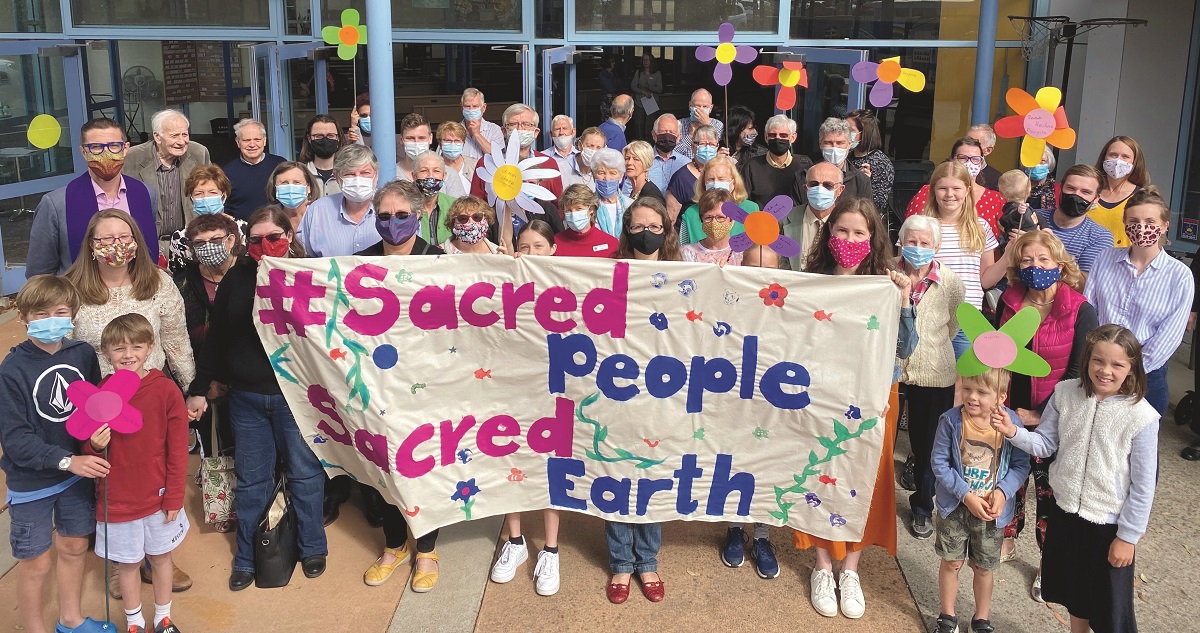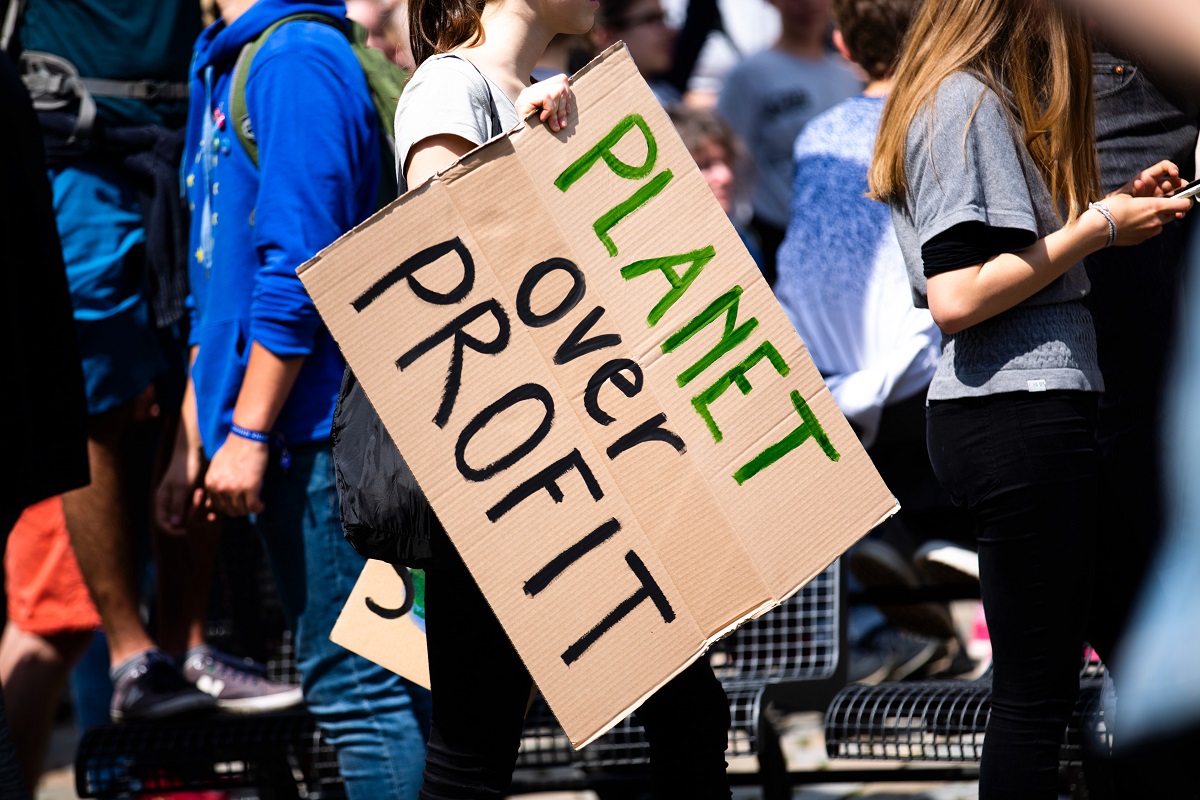By Andrew Humphries
As a 16-year-old student, Claire Harvey was already asking herself whether planet earth had a long-term future, as the impacts of climate change began to emerge.
Thirty years later, The Village Uniting Church member is one of the many people at the forefront of the campaign to raise awareness around what climate change means in 2023.
And as she ponders the issue, Claire’s need to act is driven by one simple question she faces as a parent.
“You know, one day we are all going to be asked that question of ‘what did you do while our planet was burning?’,” Claire says.
“What is our answer going to be to that question, and I’m looking my own son in the eye when I consider it.
“He will be 88 in the year 2100, and I wonder what sort of planet we will have left to his generation.”
Part of Claire’s role in raising awareness around climate change involves taking a board seat as the Uniting Church representative on CoPower, a green energy provider based in Melbourne.
The Synod of Victoria and Tasmania is a member of the non-profit provider, which offers members an opportunity to buy clean, affordable and sustainable energy.
The surplus revenue CoPower generates from electricity goes to supporting its mission of fighting poverty, tackling the climate crisis and supporting communities.
Part of its mandate means that its members make the ultimate decision on how its surplus is spent.
Last year, for example, all of its surplus revenue went towards mitigating the impacts of COVID-19.
Synod Senior Social Justice Advocate Mark Zirnsak says CoPower represents a step forward in the fight against climate change.
“It’s a community collective and it’s about setting up a model that works on the basis that our electricity system should not be for profit,” he says.
“It has members which now include the Synod, as well as community groups, environmental groups and trade unions.
“Everyone who buys electricity through CoPower then gets a chance to vote on how the money it makes is distributed to social causes, so it funds social justice projects, environmental projects and other community development projects.
“The idea is to also build a future that is emissions free, so by becoming a member of CoPower we have a seat at the table and can shape its direction, and use people’s electricity purchasing for a greater good, rather than simply putting more profits into the pockets of large corporations.”
Mark says while it’s relatively small at this stage, CoPower represents a positive model around what can be done in the green energy field.

The Village Church Mt Eliza congregation is on board the battle to build a better future for our environment.
“It does mean that people who sign up to CoPower know that their money is being used for a greater good and by buying green power through CoPower they are addressing the emissions from their normal electricity,” he says.
“We decided to become part of CoPower to then encourage church members and congregations to at least give it some consideration as a good model they can be part of.”
Claire’s board role with CoPower, which will be ratified later this year, ticks a host of boxes she says are important in the battle to arrest the impacts of climate change.
“It’s a wonderful alignment for me in terms of these multiple sorts of interests and passions I have around climate change, economics, faith-based action and good governance,” Claire says.
“It’s not just about climate change, though, but also the fact that our economic systems need radical reinvention.
“Within that, co-operative and social enterprises like CoPower are well positioned to rise up as solutions within the old system.
“We need hopeful signs in the midst of crumbling, older structures that no longer serve us well.
“Kate Pickett and Richard Wilkinson’s wonderful book ‘The Spirit Level’, which is all about how more equal societies are better societies, points to co-operative and social enterprises as being these sort of hopeful signs of new ways of doing democratic participation and economic management.”
As the Uniting Church’s board representative, Claire’s role extends to encouraging UC members to consider the benefits brought from involvement with CoPower.
Uniting Church members, she says, are in a powerful position to make change at the most fundamental level.
“We’re all buying electricity and that purchasing power can be an important platform for amplifying our collective voice,” she says.
“So where do you want your money going? What kind of systems and structures do you want to be supporting?
“Just like the movement towards forcing our banking and superannuation industries to opt out of support for fossil fuel providers, opting for an energy provider like CoPower could ripple out and become the new norm, and that would be incredibly powerful.
“I think increasingly the fossil fuel industry is fighting to survive, and it’s an opportunity for us to say you’ve been in denial for decades about your role in causing climate change, and you’ve known that this is destructive and you haven’t adapted fast enough, so we are leaving you.”
That’s exactly what Claire did in late 2021, when she cut ties with energy provider Power Shop, which had heavily promoted its green and clean credentials.

The pressure is now on global corporations to help arrest the negative impacts of climate change.
All well and good, of course, until fossil fuel giant Shell bought it out.
Claire had been with Power Shop for about a decade before she used her voice to say that Shell’s takeover of a supposedly environmentally conscious energy provider wasn’t appropriate.
“When I heard about the purchase by Shell, I was frustrated and sad,” she told the ABC at the time.
“Shell is still in the fossil fuels and oil business, and I know they’re trying to branch out and transition into a greener, cleaner future, but they’re still active in that space.”
As she prepares to take her seat on the CoPower board, Claire is looking forward to creating awareness and change at a grassroots level.
“I’m excited by the opportunity to represent a faith-based organisation,” she says.
“I know that my church is supportive of this new co-operative energy provider that’s passionate about addressing climate change, and that’s something that is wonderful to be a part of.
“I think it’s great to be in the room and at the table making an effort to create a better world for humankind.
“And if we care about our neighbour, as we’re called to, then we have to address these issues around climate change.”

